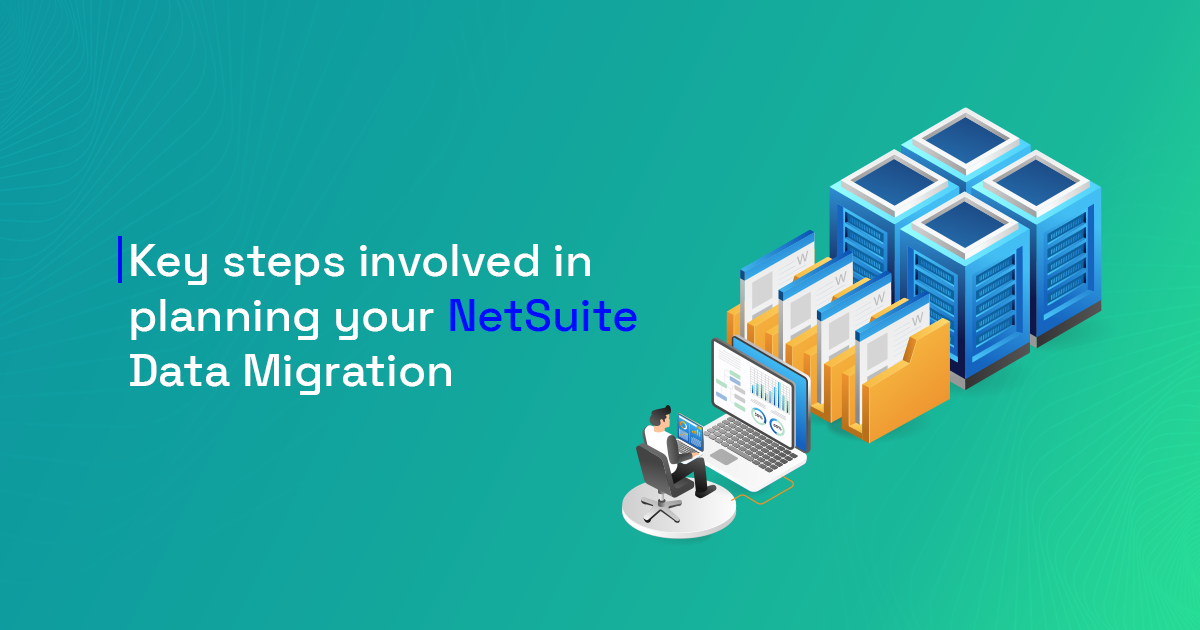Comprehensive Guide on Setting Up Accounting Periods in NetSuite!
In the dynamic world of business, efficient financial management is crucial for success. NetSuite, a leading cloud-based ERP solution, empowers organizations to streamline their accounting processes. In this guide, we'll delve into the essential steps of setting up accounting periods in NetSuite, ensuring that your financial operations run seamlessly.
Understanding the Basics: NetSuite Accounting Software
NetSuite is a cutting-edge cloud-based accounting software designed to optimize financial processes. As a comprehensive ERP solution, NetSuite goes beyond traditional accounting software, offering integrated tools for managing various aspects of your business, from financials to customer relationships.
The Importance of NetSuite Accounting Partners
NetSuite Accounting Partners play a pivotal role in implementing and customizing NetSuite solutions for businesses. These experts are well-versed in leveraging the full potential of the software, ensuring that your organization can maximize its benefits.
Key Terms : NetSuite SP Partner, NetSuite Solution Provider Partner, and NetSuite BPO Partner
NetSuite SP Partner (SuiteSuccess Partner): A NetSuite SP Partner is an expert in implementing SuiteSuccess, a methodology designed to deliver accelerated NetSuite implementations. This partner brings industry-specific knowledge to tailor NetSuite to your business needs.
NetSuite Solution Provider Partner: Solution Provider Partners offer customized NetSuite solutions, adapting the platform to the unique requirements of your industry and business model. These partners play a vital role in ensuring a seamless integration of NetSuite into your operations.
NetSuite BPO Partner: Business Process Outsourcing (BPO) Partners specialize in outsourcing specific financial processes to enhance efficiency. Collaborating with a NetSuite BPO Partner allows businesses to focus on core operations while ensuring financial tasks are handled expertly.
Setting Up Accounting Periods in NetSuite: A Step-by-Step Guide
Step 1: Accessing NetSuite
Log in to your NetSuite account.
Navigate to the 'Setup' menu.
Step 2: Company Preferences
Select 'Company' under the 'Setup' menu.
Click on 'Company Information.'
Set the 'First Month of Fiscal Year' and 'First Month of Income Tax Year.'
Step 3: Accounting Periods
Go to the 'Accounting' sub-menu.
Click on 'Accounting Periods.'
Define the fiscal periods for your organization.
Step 4: Removing an Accounting Period:
The following lists the general guidelines for removing a period.
Base Period: When there are no more transactions during the base period, you can delete this period.
Quarter: Only remove the quarter if there are no transactions in the base periods that are associated with it.
Year: Only permitted in the absence of any subperiods.
NetSuite Partners with OpenTeQ Technologies to Streamline Business Operations
Get a Free Consultation
Step 5: Closing Periods
Determine the closing periods for transactions.
Specify the 'Close Books' checkbox for each period.
Step 6: Review and Save
Review your settings.
Click 'Save' to apply the changes.
Leveraging NetSuite Services for Optimal Performance
As a NetSuite Solutions Provider, it's essential to explore the various services offered by NetSuite. These may include ERP consulting, customization, and ongoing support to ensure your organization continually benefits from NetSuite's powerful features.
Choosing the Top NetSuite Partner for Your Business
When selecting a NetSuite partner, consider their expertise, industry knowledge, and track record. A top NetSuite partner will not only assist in the initial set-up but will also provide ongoing support and consultation to help your business thrive.
Conclusion
Setting up accounting periods in NetSuite is a critical step in optimizing your financial processes. By partnering with a NetSuite SP Partner or Solution Provider, you ensure that your implementation is tailored to your business needs. Embrace the power of NetSuite with OpenTeQ and take your financial management to new heights with a trusted NetSuite partner by your side.
Leading ERP Provider OpenTeQ Joins NetSuite's Ecosystem
Stay tuned with OpenTeQ for more updates on NetSuite ERP Consulting. Reach out at info@openteqgroup.com or contact to know more at +91 70322 54999 /+1 602 666 8247!




